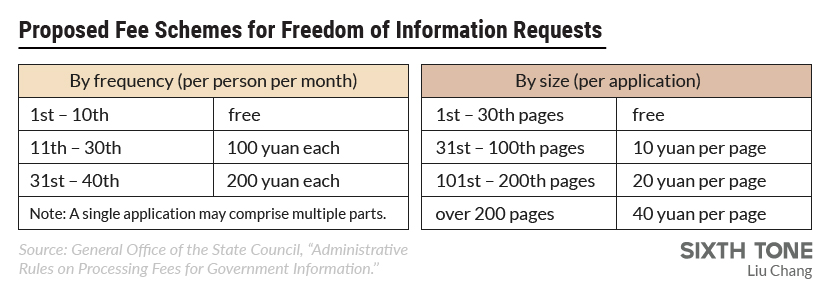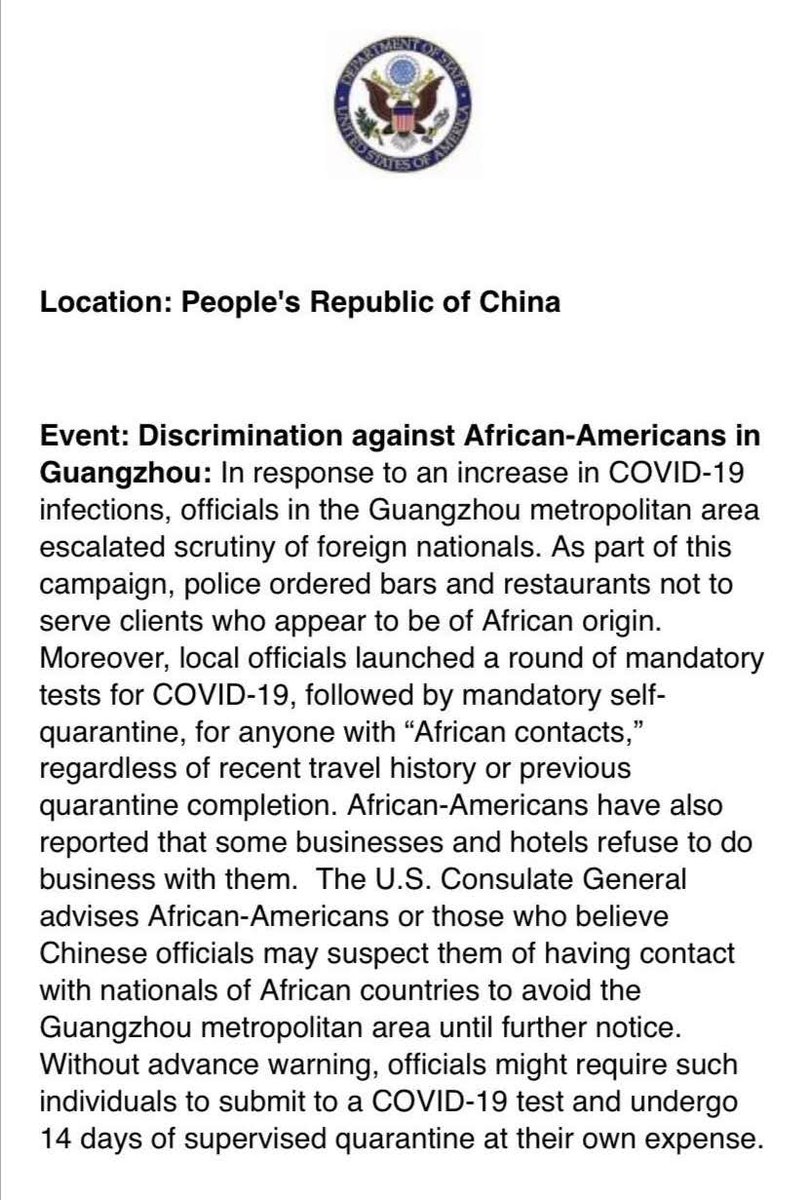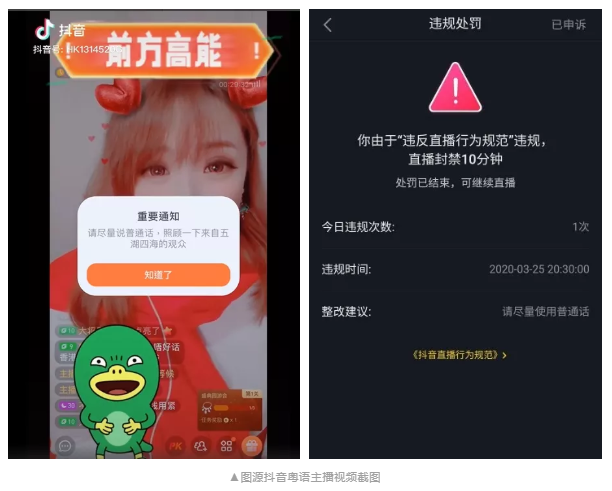
THREAD: Last week, China’s Cabinet announced that, for the first time, fees will be charged for “excessive” freedom of information requests, potentially meaning huge out-of-pocket expenses for lawyers and others who rely heavily on public information from the Chinese government.
According to a notice published Dec. 1, government offices will be able to choose from two different rate schemes: one based on frequency, one based on size. gov.cn/zhengce/zhengc… 

The “size” route is especially problematic. Here’s why:
If you’re an activist or a lawyer seeking a copy of an 800-page environmental impact assessment report, it’s going to cost you around $4,000 under this scheme.
If you’re an activist or a lawyer seeking a copy of an 800-page environmental impact assessment report, it’s going to cost you around $4,000 under this scheme.
In the past, disclosure requests were essentially free in China because there were no rules for charging fees.
In fact, last December an administrative agency in Shenzhen was ordered to reimburse an applicant after sending him a pay-on-delivery parcel. shenzhen.sina.com.cn/news/s/2019-12…
In fact, last December an administrative agency in Shenzhen was ordered to reimburse an applicant after sending him a pay-on-delivery parcel. shenzhen.sina.com.cn/news/s/2019-12…
According to the State Council’s Dec. 1 notice, the aim of adding the fees isn’t to generate revenue, but to “guide applicants to exercise their rights reasonably.”
Regardless of intention, however, the new costs will likely be a hindrance to those seeking public information.
Regardless of intention, however, the new costs will likely be a hindrance to those seeking public information.
In legal cases involving eminent domain and large infrastructure projects, for example, essential documents can easily number hundreds of pages. Of course, such cases are also the ones that tend to impact the most people.
“Processing applications for government information requires time and labor,” said Wang Peng, a lawyer at Beijing Fahuan Law Firm. “But some departments — particularly those at the lowest levels of government — make too little information publicly available.”
Perhaps it would be useful in this moment to remember the words of Premier Li Keqiang, who in 2016 famously said 政务公开就是常态,不公开是例外 — that making government affairs public should be the norm rather than the exception. thepaper.cn/newsDetail_for…
(Credit to my colleague @LiuChang_Claire, data journalist at Sixth Tone, for all of the above.)
• • •
Missing some Tweet in this thread? You can try to
force a refresh





